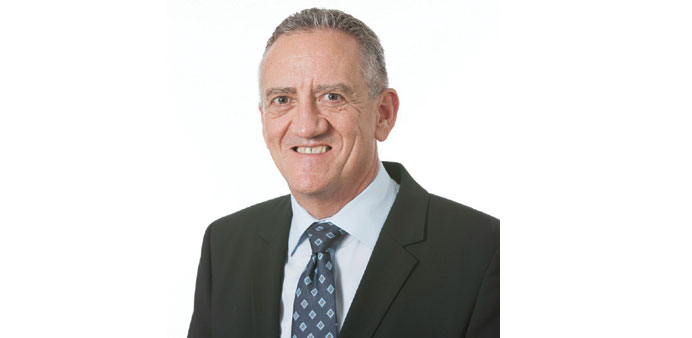Maersk Oil Qatar has spent around $962mn last year on goods and services that were sourced locally, accounting for 63% of its total spend, the company said in its 2014 Sustainability Report.
Managing director Lewis Affleck said part of Maersk Oil Qatar’s contributions to the local economy and national development is to further develop the local Qatar economy through employment, skills development, training, supporting local enterprise, and hiring local contractors.
He said recruiting, retaining, and developing Qatari nationals were also key focus areas, with a steady increase in the number of Qataris employed year-on-year. At the end of 2014, Affleck said 215 Qataris were employed and now make up around 23% of the company’s workforce.
“Qatarisation is of utmost importance and our focus is on nurturing local talent for the future of Qatar. We work to develop capacity, as well as providing opportunities and an attractive working environment for Qatari nationals,” said Sheikh Faisal bin Fahad al-Thani, deputy managing director of Maersk Oil Qatar.
Affleck said Maersk Oil Qatar’s 2014 Sustainability Report reinforces the company’s commitment to support the long-term development of Qatar, and reports on its environmental, health and safety performance in the last calendar year, as well as outlining the various ways the company is contributing to Qatar’s social and economic development.
“As operator of Qatar’s largest offshore oil field, the Al Shaheen, for more than 20 years, we take our responsibility to support the long-term sustainable development of Qatar very seriously. While our focus remains on the safe, sustainable extraction of hydrocarbons with minimum environmental impact, we constantly seek to broaden and deepen our partnerships to deliver meaningful and positive long-term societal impacts,” Affleck said.
As a socially-responsible operator, Affleck said the sustainability report demonstrates how the company’s social investment programme, “Action for Qatar,” is gaining pace in addressing some of the biggest challenges facing Qatari society.
In health, Maersk Oil’s “Action on Diabetes” programme continued its screening and education activities, conducted in-depth research, ran awareness campaigns, and provided specialised diabetes training for health care professionals.
Affleck said education was another focus area for Maersk Oil Qatar’s social investment programme. The company supported and partnered with various local and international institutions to promote career opportunities in the energy industry and develop local skills and capacities – all with a special focus on STEM (science and technology, engineering, and math) and leadership development.
In partnership with the Ministry of Interior, Maersk Oil Qatar sustained its commitment to the “One Second” national road safety brand and programme, which supports Qatar’s National Road Safety Strategy. One Second-related activities focused on educating and raising awareness of road safety among children and students, including the importance of wearing seat-belts.
On health and safety, the report showed that employees and contractors worked 9.8mn man-hours at Maersk Oil Qatar in 2014, resulting in a lost-time injury frequency (LTIF) rate of 0.61 per million man-hours across all operations – a LTIF rate “that remains better than the International Association of Oil and Gas Producers industry benchmark, and better than the previous year.”
Maersk Oil Qatar also continued to integrate environmental considerations into its operations. In January 2014, the Maersk Oil Qatar Environmental Management System (EMS) was audited externally and successfully re-certified to the ISO14001: 2014 International Standard.

Lewis Affleck
